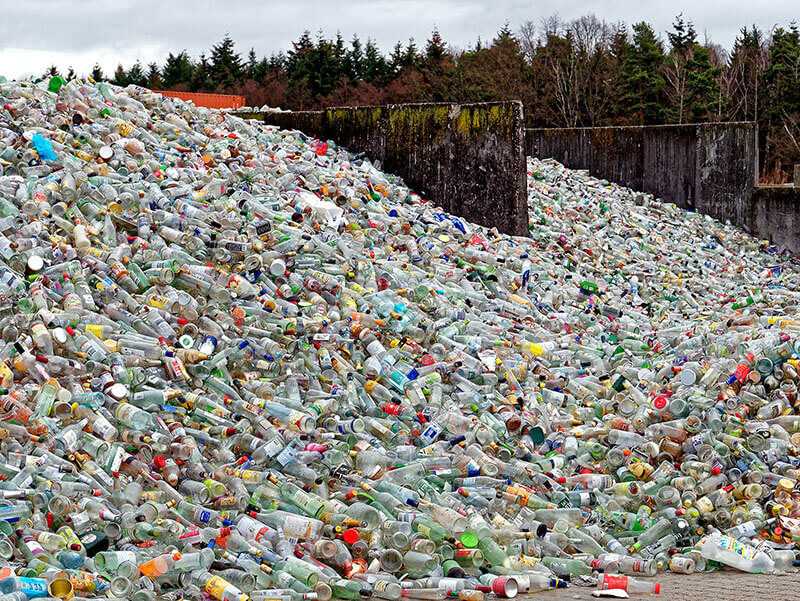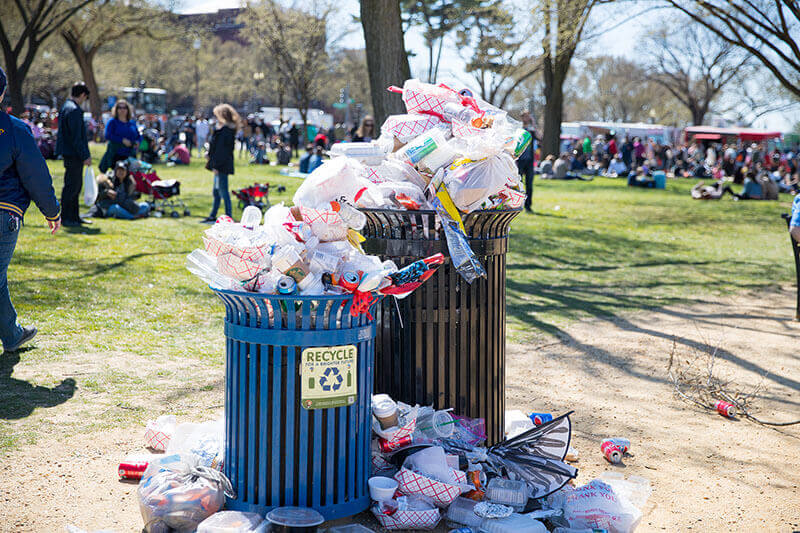November 12, 2019
Spero Renewables signs $2 million DOE agreement to advance ‘wood-based’ plastic technology

Enormous mounds of plastic are collected for recycling. In the last 20 years, the world went from producing 99 metric tons of plastic annually to creating more than 320 million each year. (Stock image)
Plastic-made surplus wood shown to be as strong as steel but light weight and more easily recyclable.
SANTA BARBARA, Calif. - Spero Renewables LLC, a clean tech company based in Santa Barbara, California, announced Tuesday (Nov. 12) a $2 million cooperative agreement with the Office of Energy Efficiency and Renewable Energy of the Department of Energy to advance its proprietary plastics technology developed from surplus wood.
The technology, called SperoSet, produces unique lignin-based thermoset polymers that are renewable and recyclable. The research was published last year in Macromolecules.
“The majority of plastics produced today come from crude oil, and most of it is used once and then thrown away,” said Ian Klein, Spero’s chief technology officer. “There is a critical need for renewable substitutes to petrochemicals used in plastics and other products. The SperoSet technology is designed for the manufacture of high-tech plastics produced from fiber reinforced polymers (FRPs). These high-tech plastics are as strong as steel but are lightweight and have multiple uses including automotive and aerospace production.”
According to the World Economic Forum, the world produced an estimated 320 million metric tons of plastic in 2015, up from 288 million in 2012, and much more than the 99 million in 1989.
“Compared to current crude oil starting material, SperoSet will have a small carbon footprint, while still affording all of us the modern amenities that thermoset plastics offer,” Klein said.
 Recycle and trash bins overflow from the amount of plastic, paper and other trash that pile up in and around containers. A technology that shows promise in developing biodegradable plastic made from wood surplus could help alleviate the growing problem. (Stock image)
Download image
Recycle and trash bins overflow from the amount of plastic, paper and other trash that pile up in and around containers. A technology that shows promise in developing biodegradable plastic made from wood surplus could help alleviate the growing problem. (Stock image)
Download image
Spero’s form of plastic, thermoset plastics come from renewable sources, which are easily molded, strengthen when heated, provide strong insulation and are also resistant to corrosion and chemicals. They have wide applications from the automotive to electronic industry.
These types of plastics are currently used for epoxies, silicone products and polyurethane products.
“With this new DOE joint cooperative agreement, we are currently looking toward identifying the best fit application to roll the technology out into before implementing SperoSet into broader high-performance plastics markets,” Klein said.
Spero developed related technologies while based in the Purdue Research Park of West Lafayette, Indiana, that were further advanced at the University of California, Santa Barbara. The company licensed a technology developed at Purdue University through the Purdue Research Foundation Office of Technology Commercialization when Spero was formed in 2013. For more information on licensing a Purdue innovation, contact the Office of Technology Commercialization at otcip@prf.org.
About Spero Renewables
Spero Renewables LLC is a green chemistry company that develops technologies for plant-based alternatives to products manufactured with petrochemicals. Spero utilizes its proprietary technology to unlock the resources of readily available biomass for making natural and environmentally friendly products. Spero was founded in 2013 at Purdue University by Mahdi Abu-Omar, who now is the Mellichamp Professor of Green Chemistry at the University of California, Santa Barbara.
Source: Ian Klein, ian@sperorenewables.com
Media contact: Cynthia Sequin, Purdue Research Foundation, casequin@prf.org

